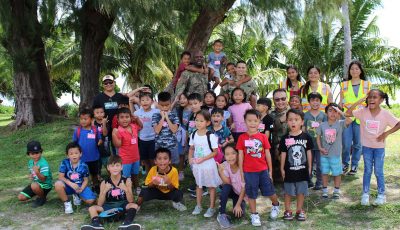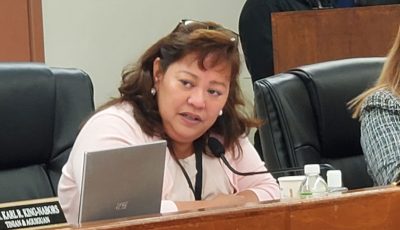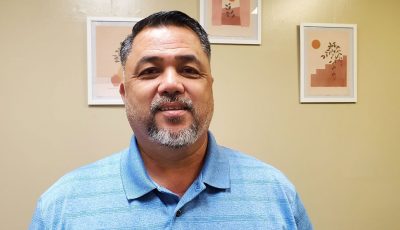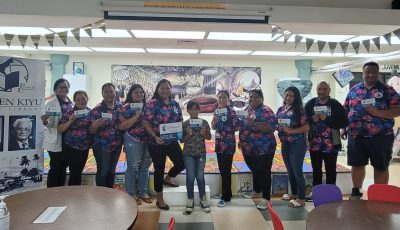Torres announces $441,815 for Carolinian cultural preservation
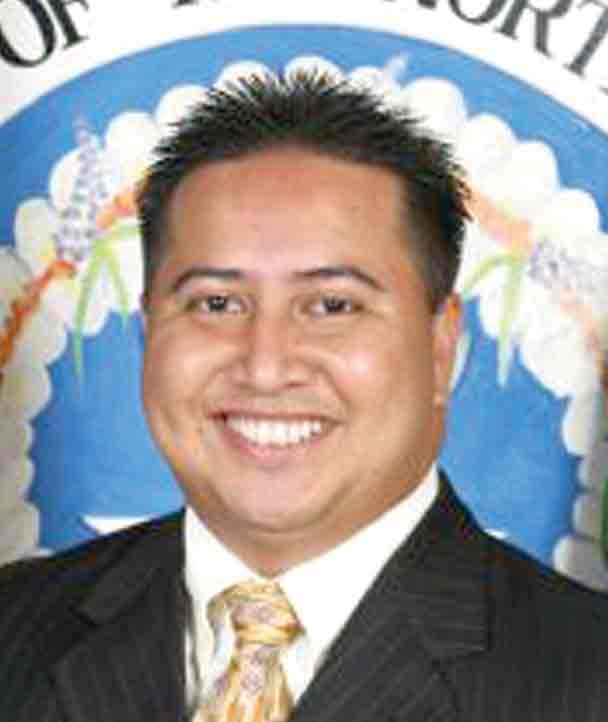
Torres
Gov. Ralph DLG Torres, through the Carolinian Affairs Office (CAO) and the Office of Grants Management (OGM), announced yesterday that the Administration for Native Americans (ANA), under the US Department of Health and Human Services, awarded $441,815 for three years for Carolinian youth development and cultural preservation through the Social and Economic Development Strategies (SEDS) program.
Torres said $180,967.00 has been allocated for the first year (FY 2018), with $129,734.00 for the second year (FY 2019) and $131,114.00 for the third year (FY 2020).
The ANA promotes social and economic self-sufficiency in communities through SEDS grants.
These financial assistance grants are highly competitive and support state and territorial projects that aim to reduce or eliminate community problems and achieve community goals for native communities around the country.
At the beginning of the calendar year, Torres outlined key priorities aimed at effectively preserving cultural heritage and traditional practices and has fostered conversations with offices to seek ways of funding these priorities.
In June of this year, Carolinian Affairs executive assistant for John Henry I. Tagabuel submitted the office’s project, “Tepengi Kkosch Refaluwasch/Caring for Our Carolinian Culture,” to the ANA SEDS program for consideration. The project proposal was aimed at better fostering cultural knowledge and practices for the Carolinian community.
“In coordination with the Office of the Governor and the Office of Grants Management, we worked on the proposal’s problem statement which is that Carolinian youths are currently not acquiring traditional knowledge and practices. In line with the mission of CAO, which is to develop programs and provide services that protect, promote, and preserve the welfare, culture, and traditions of the indigenous Carolinians of the CNMI, the goal was to teach more traditional cultural knowledge and practices to the Carolinian youth and adults,” Tagabuel said.
He added that in order to achieve the project goal, CAO has two project objectives.
“The first objective is that by the end of the three years, or the 36-month project period, 200 Carolinians (125 in ages 10-17; 75 in ages 18 and above) will have maintained, among them, at least 10 traditional knowledge and practices. The second objective is that in three years, CAO will have established a cultural artifacts display hall to showcase and support Carolinian traditional culture. Our office remains committed to making sure we achieve this goal with our community partners. I want to personally thank Manny F. Borja, Daisy Wabol, Susan White, and Emma Perez for their assistance on this application,” Tagabuel added.
OGM administrator Epiphanio E. Cabrera Jr. noted that he is very pleased with the result from the CAO grant submission to ANA.
“The positive result is a testament to the work CAO put in. Getting an award from ANA is very difficult given the amount of competition and limited amount of awards available. The public should expect a myriad of cultural outputs and outcomes to come out of this ANA grant award,” Cabrera said.
Torres added that the grant award will center on youth development, community health development, and strengthening families.
“In line with the ANA’s mission, the grant award will help the Carolinian Affairs Office foster youth development through the traditional cultural activities for our children. Our kids will also gain more knowledge of traditional medical practices, the value of local food, and the significance of our historical arts and crafts. Something that’s near and dear to my heart is that our kids will have more opportunities to also learn more about subsistence farming. Ultimately, it is our collective goal to strengthen the family because these cultural activities will foster the well-being of our children and our parents as they learn together. I commend CAO for their work on this grant, and we look forward to overseeing its success,” he said. (PR)



